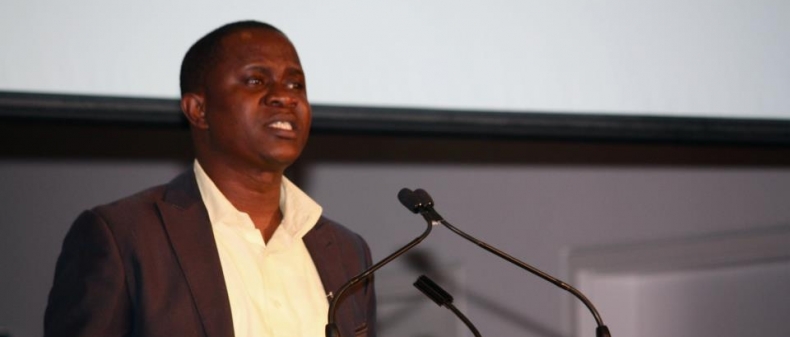
In the wake of Israel’s bombing of a Gaza media building last week before the ceasefire, Nora Barrows-Friedman reports in Common Dreams that since 2008, “nearly a dozen Palestinian media outlets have been raided, and fourteen media stations have had their equipment stolen and confiscated by the Israeli military.”
Media are important, in war time, certainly, but even during the ridiculously extended home-turf peace we’ve experienced around these parts. It’s one of the reasons Rob Ford refuses to talk to the Star and why Stephen Harper refuses to talk to anyone.
But it’s easy to forget what a fundamental role they play, through assiduous reporting but also by their mere existence. They act like a panopticon, that delightful 19th-century prison design that allowed a very few guards to efficiently monitor and thus moderate the behaviour of a great many prisoners. By giving the guard a window into any cell at any time, prisoners, never knowing when they were being watched, had a tendency to behave all the time.
Easy here, that is. In most other parts of the world, not so much. We Torontonians were reminded of that recently when Journalists for Human Rights (JHR), founded in Toronto by Ben Peterson, brought journalists and journalism activists from several African countries to town for a fund-raising gala at the ROM. People paid $60 a pop for drinks, and considerably more for dinner (I was there as a guest of Google, who bought a table and wanted to fill it with fascinating conversationalists. They came up one short, hence…). Everyone was there to meet folks like Freddy Mata, from the Democratic Republic of Congo, and Lawrence Randall from Liberia, and hear stories about the role of the media in their tumultuous parts of the world.
The next day, Randall and I went out to talk in the relative peace of a Spadina shwarma spot, where he told me a story about a story.
A little while ago, he said, JHR sent a Canadian journalist, Chris Mason, to Liberia to mentor local journalists, for whom 50 per cent of their stories come from government press releases and the more than 200 press conferences the national government holds every year. This is not because they’re lazy, he said, or cronies, but because they lack both the resources and the perspective to chase news elsewhere.
“What he did there,” Randall told me, “was work with two reporters. He made sure he pitched these journalists on issues around human rights.” They had been hearing that there were problems in government schools, student violence, and heard one particular story of a kid who got into a scuffle over a chair in class, who got his arm broken. Usually, Randall said, if this story were to have been covered, it would have been a simple story about a boy and his broken arm. But Mason suggested they make a trip out to the school to check it out. It seemed, he said, that it might be a pattern, maybe a symptom of something bigger. Though they were used to telling stories of mothers who had difficulty in childbirth and other such human-interest stories that would usually be below the radar in most North American journalism circles, the local reporters would not have thought to travel to pursue a story. It was too expensive. But since one of the things JHR funding does is supply vehicles and gas, they hopped in a went after it.
“It turned out,” Randall said, “that there were four students for every chair, which is what the fight was about: Who got the chair.”
They ran the story that way, with the broken arm as the hook rather than the meat of the story, and it went the Liberian version of viral. The prime minister suspended, and then fired the education minister over what was by then a four-students-one-chair scandal, and immediately sent the school $20,000 in funding.
“The normal trend of reporting in Liberia is not about those issues,” Randall said. “It’s about politics. But because of the emphasis that JHR place on these stories has changed the way these reporters do their jobs.”
They’ve done other stories, too, about the causes behind impure drinking water, and other big-picture pieces that get both journalists and the public at large (and, with any luck, local and national government) thinking about how things are connected, where those connections lead, where they break down, and how they might get fixed.
Randall is the executive director of the Liberia Media Centre. As far as he’s concerned, the work they’re doing, along with JHR, DFAIT, USAID and other funders and partners, is nothing less than the establishment and maintenance of Liberia’s soul after years of presidential pillage that left the nation, fabricated by Americans with noble put probably misguided intent as a home for freed slaves, without a centre.
When we think about foreign aid, we — or at least I — tend to think in terms of food, wells, roads and maybe even arms for rebel groups. But the very thing that’s wrong with almost all, and perhaps all, foreign aid to places like Liberia is that it comes from away. Programmes that offer context and perspective on how a country runs itself allow the people themselves to naturally notice, observe, criticize and alter the way the country works.
It’s something to remember next time you write a cheque to help out a country or a people in need, and almost as importantly, next time you find yourself not thinking about how Harper, Ford and even that secular saint to the south, liberator of the hopes of millions, try to marshal the media to their own ends.
Correction: In a previously published version of this article, Lawrence Randall and Freddy Mata’s names were spelled incorrectly. We regret the error.
____
Bert Archer writes for Toronto Standard. Follow him on Twitter: @bertarcher.
For more, follow us on Twitter: @TorontoStandard, or subscribe to our newsletter.














